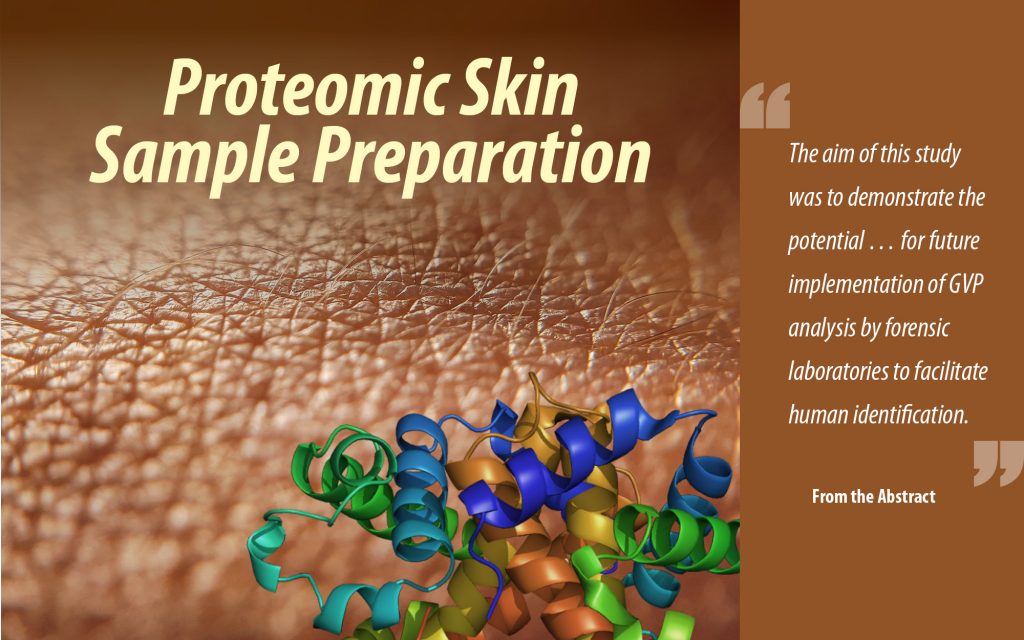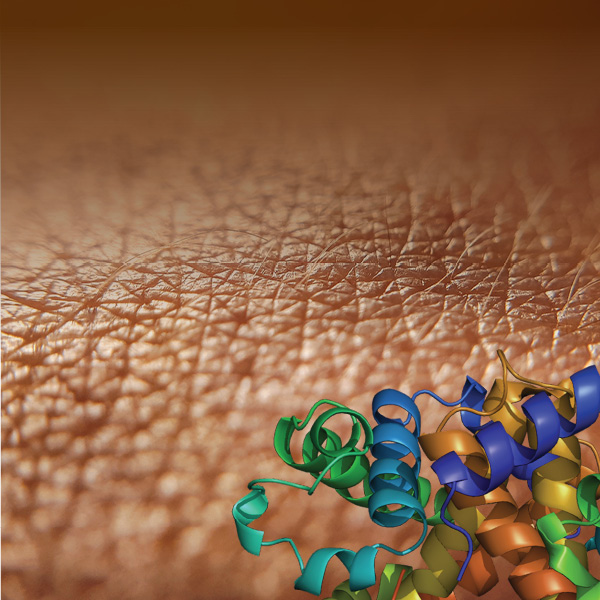
Abstract
We present an efficient protein extraction and in-solution enzymatic digestion protocol optimized for mass spectrometry-based proteomics studies of human skin samples. Human skin cells are a proteinaceous matrix that can enable forensic identification of individuals. We performed a systematic optimization of proteomic sample preparation for a protein-based human forensic identification application. Digestion parameters, including incubation duration, temperature, and the type and concentration of surfactant, were systematically varied to maximize digestion completeness. Through replicate digestions, parameter optimization was performed to maximize repeatability and increase the number of identified peptides and proteins. Final digestion conditions were selected based on the parameters that yielded the greatest percent of peptides with zero missed tryptic cleavages, which benefit the analysis of genetically variable peptides (GVPs). We evaluated the final digestion conditions for identification of GVPs by applying MS-based proteomics on a mixed-donor sample. The results were searched against a human proteome database appended with a database of GVPs constructed from known non-synonymous single nucleotide polymorphisms (SNPs) that occur at known population frequencies. The aim of this study was to demonstrate the potential of our proteomics sample preparation for future implementation of GVP analysis by forensic laboratories to facilitate human identification.
Significance
Genetically variable peptides (GVPs) can provide forensic evidence that is complementary to traditional DNA profiling and be potentially used for human identification. An efficient protein extraction and reproducible digestion method of skin proteins is a key contributor for downstream analysis of GVPs and further development of this technology in forensic application. In this study, we optimized the enzymatic digestion conditions, such as incubation time and temperature, for skin samples. Our study is among the first attempts towards optimization of proteomics sample preparation for protein-based skin identification in forensic applications such as touch samples. Our digestion method employs RapiGest (an acid-labile surfactant), trypsin enzymatic digestion, and an incubation time of 16 h at 37 °C.
View full paper here.
Authors: Maryam Baniasada, Andrew J. Reedb, Stella M. Laia, Liwen Zhangb Kathleen Q. Schultec, Alan R.Smithc, Danielle S.LeSassierc, Katharina L.Weberc, F. CurtisHewittc, August E.Woernerd, Myles W.Gardnerc, Vicki H.Wysockia, Michael A.Freitasbe
a Department of Chemistry and Biochemistry, The Ohio State University, Columbus, OH, USA
b Mass Spectrometry and Proteomics Facility, Campus Chemistry Instrument Center, The Ohio State University, Columbus, OH, USA
c Signature Science, LLC, Austin, TX, USA
d Center for Human Identification, University of North Texas Health Science Center, Fort Worth, TX, USA
e The Ohio State University Wexner Medical Center, Columbus, OH, USA

